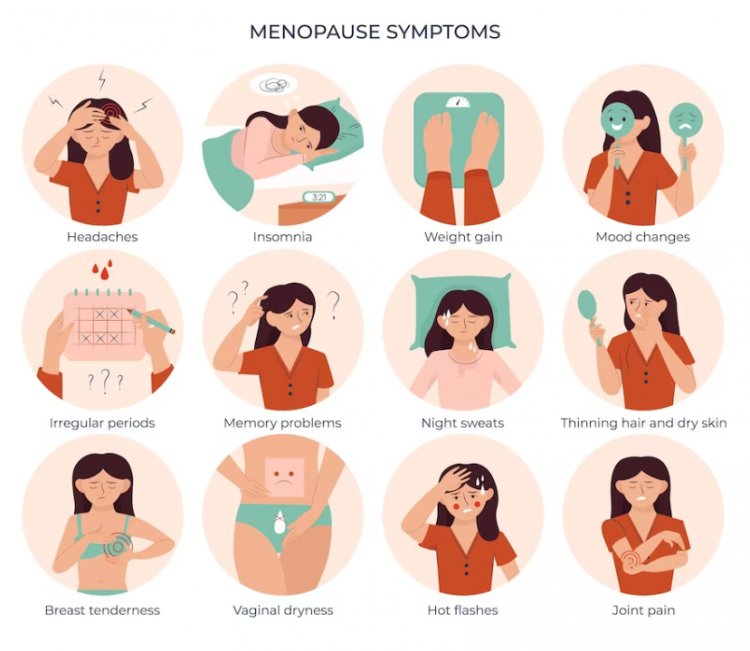The Menopause Journey: Exploring Hormonal Changes, Symptoms, and Treatment Options
Menopause is a natural biological process that marks the end of a woman's reproductive years. It typically occurs between the ages of 45 and 55, with an average age of onset around 51. Menopause is defined as the absence of menstruation for 12 consecutive months. This transition is characterized by hormonal changes that impact various aspects of a woman's health and well-being.

Stages of Menopause:
Menopause is often divided into three stages:
-
Perimenopause: This stage typically begins several years before menopause when the ovaries gradually produce less estrogen. Perimenopause can last for several years and is characterized by irregular menstrual cycles, as well as symptoms such as hot flashes, night sweats, mood swings, and sleep disturbances.
-
Menopause: Menopause is officially diagnosed when a woman has gone 12 consecutive months without a menstrual period. At this stage, estrogen levels have significantly decreased, leading to the cessation of menstruation and the end of fertility.
-
Postmenopause: Postmenopause refers to the period of time after menopause. During this stage, menopausal symptoms such as hot flashes and night sweats may gradually diminish, although other health concerns associated with aging, such as osteoporosis and heart disease, become more prevalent.
Hormonal Changes:
Estrogen and progesterone are two key hormones produced by the ovaries that play essential roles in regulating the menstrual cycle and maintaining reproductive health. During menopause, the ovaries gradually produce less of these hormones, leading to hormonal fluctuations that can affect various systems in the body.
-
Estrogen: Estrogen levels decline significantly during menopause, leading to symptoms such as hot flashes, vaginal dryness, and changes in mood. Estrogen also plays a crucial role in maintaining bone density, so decreased estrogen levels can increase the risk of osteoporosis and bone fractures.
-
Progesterone: Progesterone levels also decline during menopause, although to a lesser extent than estrogen. Progesterone helps regulate the menstrual cycle and supports pregnancy by preparing the uterus for implantation. Decreased progesterone levels can contribute to irregular menstrual cycles and other symptoms of perimenopause.
Common Symptoms of Menopause:
Menopause is often associated with a range of symptoms that can vary in severity from woman to woman. Some common symptoms include:
- Hot Flashes and Night Sweats
- Mood Swings
- Vaginal Dryness
- Sleep Disturbances
- Changes in Libido
- Weight Gain
- Urinary Symptoms
Psychological Effects:
In addition to physical symptoms, menopause can also have psychological effects on women's mental health and well-being. The hormonal fluctuations and changes in life stage associated with menopause can contribute to feelings of anxiety, depression, and low self-esteem.
Treatment Options:
While menopause is a natural and unavoidable process, there are several treatment options available to help manage its symptoms and improve quality of life:
- Hormone Replacement Therapy (HRT)
- Non-hormonal Medications
- Lifestyle Modifications
- Alternative Therapies
- Regular Health Screenings
Conclusion:
Menopause is a natural and inevitable stage of life that marks the end of a woman's reproductive years. While it can be accompanied by a range of physical and psychological symptoms, there are many strategies available to help manage these symptoms and improve overall quality of life. By working closely with a healthcare provider and making healthy lifestyle choices, women can navigate the transition of menopause with confidence and grace.
What's Your Reaction?





















